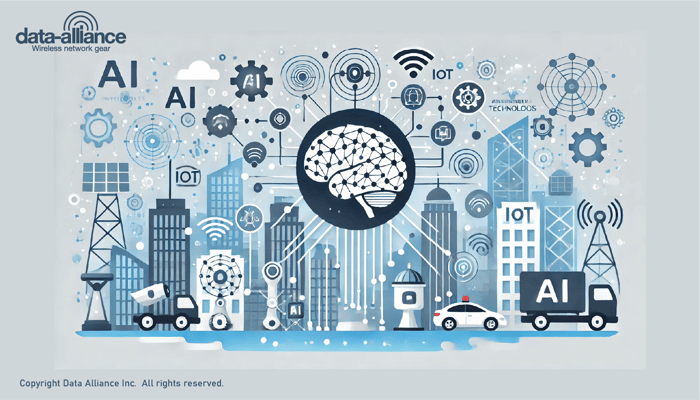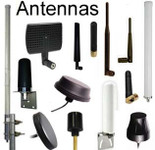Antennas, Antenna Cables, Wireless Products: Technical Articles
Advances in Wireless IoT Technologies Enable Autonomous Systems, Automation and AI
Wireless IoT Technologies Advancements
The Internet of Things (IoT) has rapidly evolved in recent years, and with it, the role of artificial intelligence (AI) and automation has also changed. Wireless technologies have played a crucial role in this transformation, allowing for more efficient and effective communication between devices.
Artificial Intelligence (AI)
One of the most significant changes in AI and automation's role in IoT is the ability to process and analyze vast amounts of data in real-time. This has been made possible by advancements in wireless technologies such as 5G, which offer faster data transfer rates and lower latency. As a result, AI and automation can now make decisions and take actions based on real-time data, improving efficiency and productivity.

Wireless technologies have also enabled the development of more sophisticated sensors and devices that can collect and transmit data from remote locations. This has revolutionized industries such as agriculture, where IoT sensors can monitor soil moisture levels, temperature, and other environmental factors, allowing farmers to make more informed decisions about crop management. In manufacturing, IoT sensors can be used to monitor the performance of machines, identify potential issues before they occur, and optimize production processes.
Autonomous Systems
Another area where AI and automation are changing the role of IoT is in developing autonomous systems. Autonomous vehicles, for example, rely on sensors, AI, and automation to navigate roads and avoid obstacles. The use of wireless technologies allows these systems to communicate with other vehicles and infrastructure, improving safety and efficiency on the road.
However, the increasing role of AI and automation in IoT also raises concerns about privacy and security. With more data being collected and analyzed, there is a risk that personal data could be compromised or misused. To address this, there is an increased focus on developing secure wireless technologies and implementing data protection measures, ensuring that sensitive information is safeguarded and you can feel confident using these technologies.
In Conclusion:
The changing role of AI and automation in IoT is closely tied to the development of wireless technologies. These technologies have enabled more efficient communication, real-time data processing, and the development of autonomous systems. However, as IoT continues to grow, it is essential to address concerns about privacy and security to ensure that these technologies are used responsibly and ethically.







